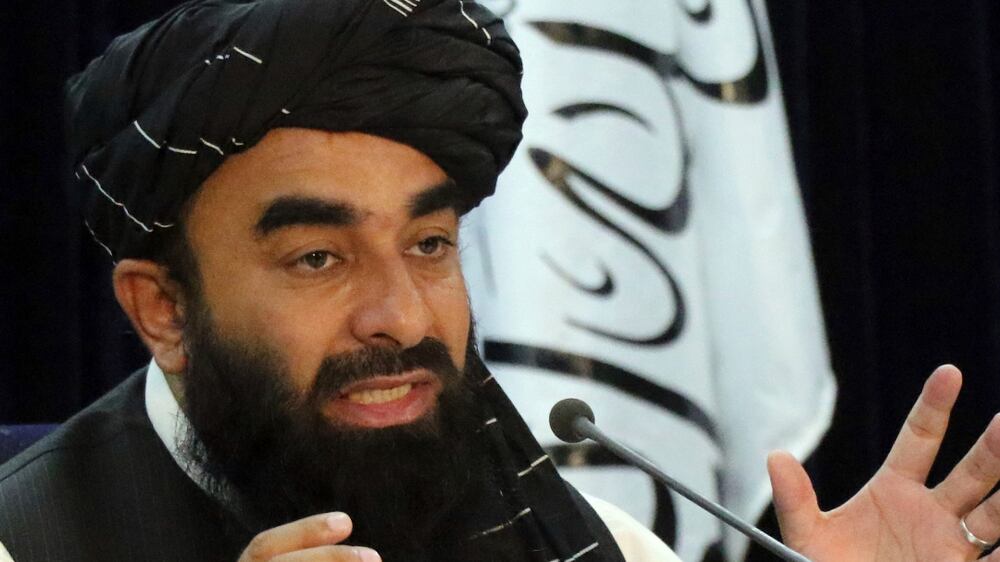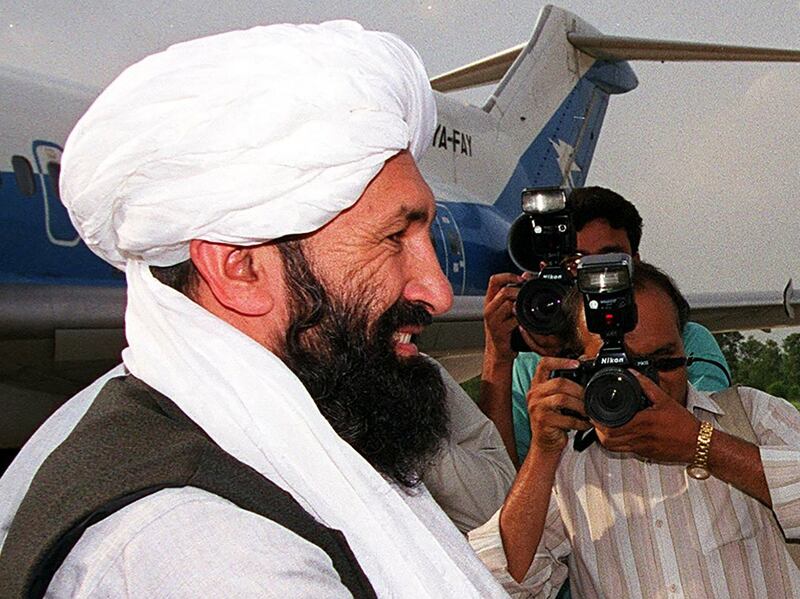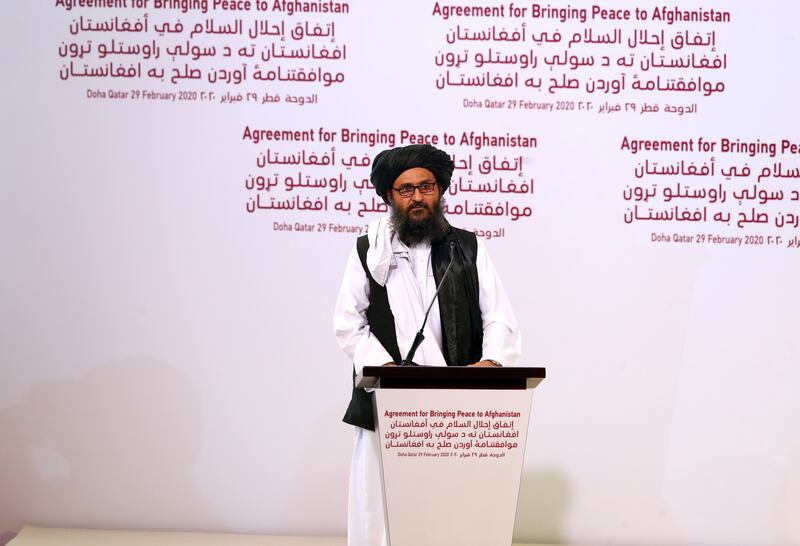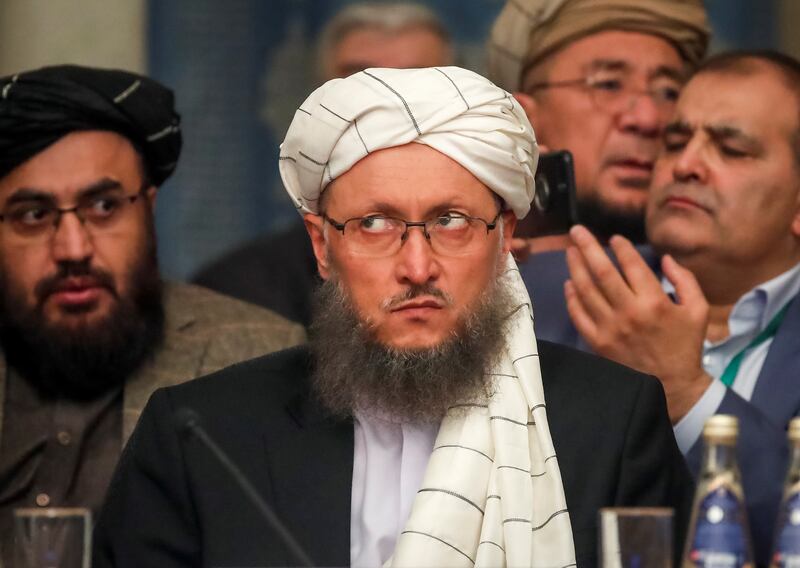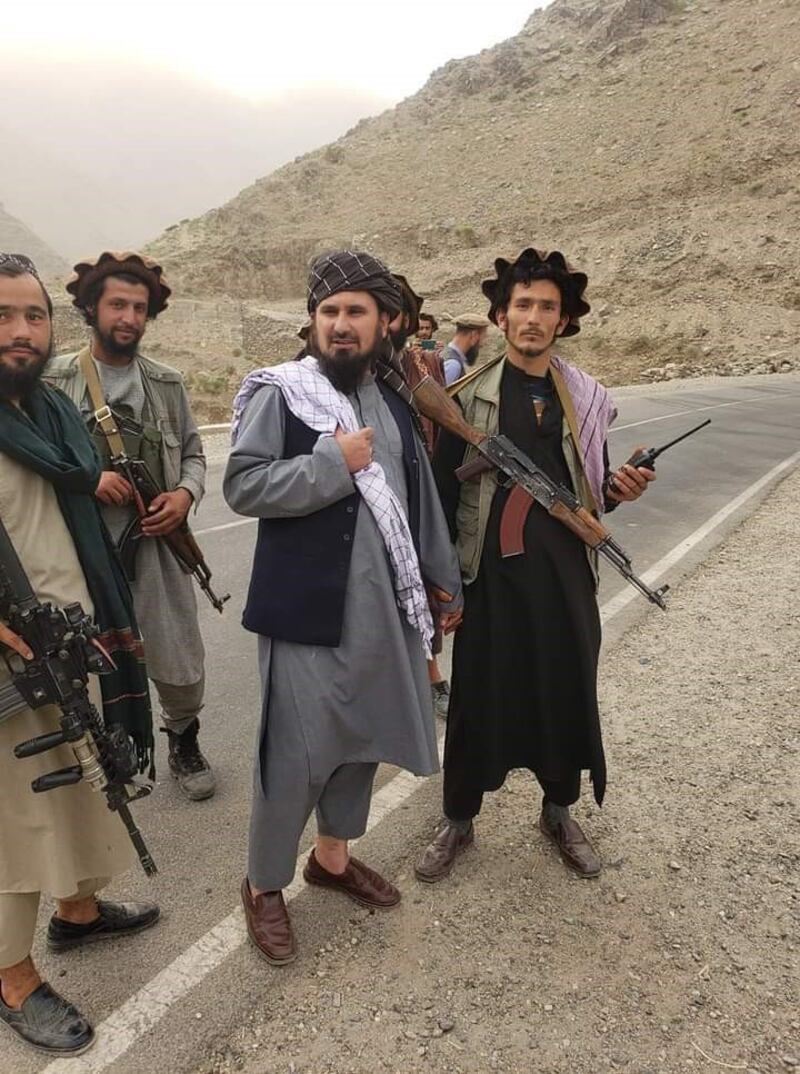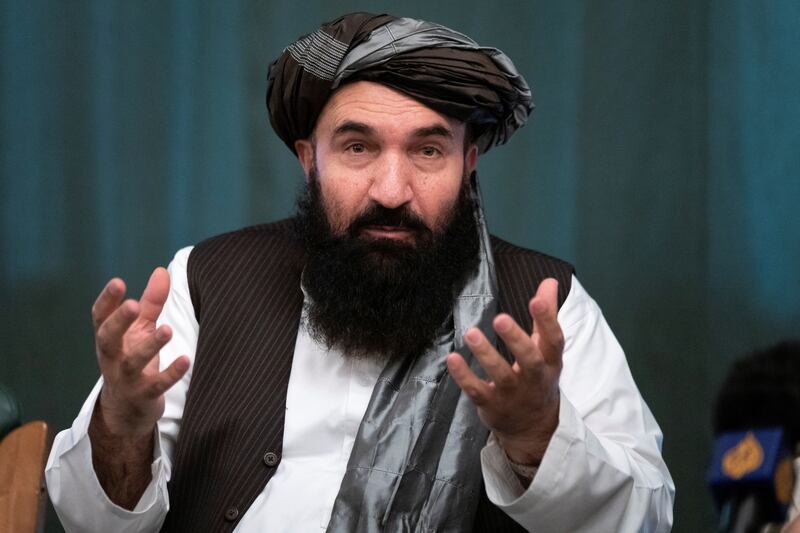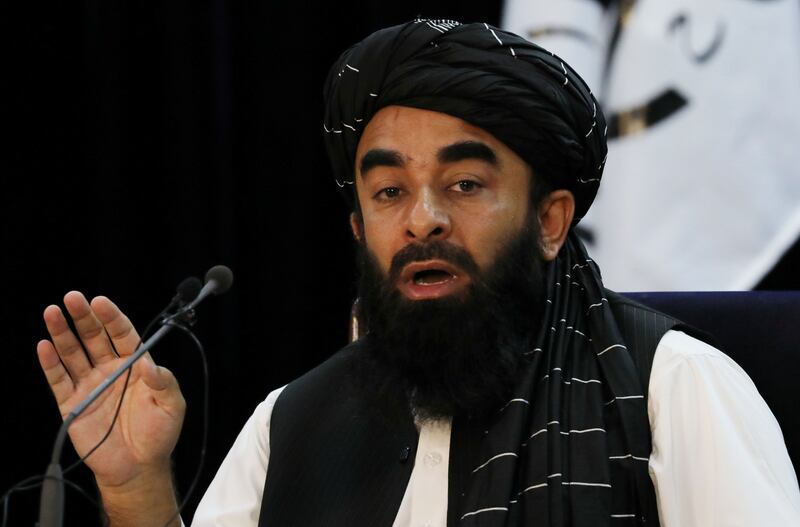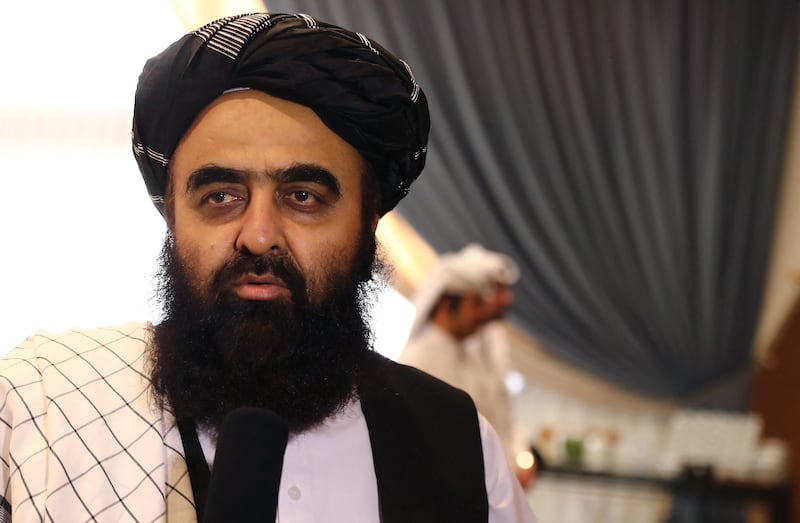Follow the latest updates on Afghanistan here
The Taliban on Tuesday announced their first government after taking control of Afghanistan last month.
Key positions were given to some of the movement’s leading officials and the Ministry of Women’s Affairs, which was a staple in governments before Taliban rule, was removed.
The hardline movement had been expected to announce a government since the US and its allies completed their withdrawal from Kabul on August 31.
The Taliban promised an “inclusive” government that represents Afghanistan’s complex ethnic make-up, although women are unlikely to be included at the top level and, as of now, most of the positions are held by Pashtuns.
Afghan women stage protest urging country's new leaders to include women in the cabinet
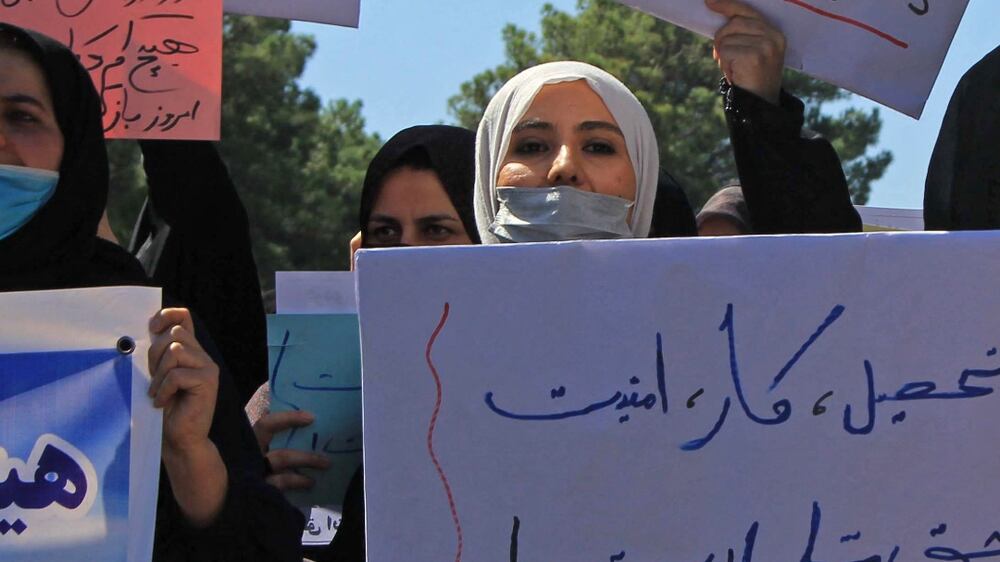
The Taliban’s new Cabinet
Mohammed Hassan Akhund – Acting Prime Minster
Mohammad Hassan Akhund was announced as leader of the Taliban’s new government. He is a Taliban veteran who was a close associate and political adviser to Mohammed Omar, the founder of the movement and its first supreme leader.
A member of the group's Supreme Council, he served as deputy foreign minister in their previous regime, prior to the 2001 invasion. He was placed on a UN Security Council sanctions list connected to the "acts and activities" of the Taliban. The UN said he had a reputation of having been "one of the most effective Taliban commanders".
He is originally from Kandahar, the birthplace of the Taliban, where he also served as the Taliban governor of the province.
Abdul Ghani Baradar – Deputy Prime Minister
Taliban co-founder Abdul Ghani Baradar will be one of two deputy prime ministers. The second deputy will be Abdul Salam Hanafi, an ethnic Uzbek and a member of Taliban’s political office in Doha, Qatar. He was deputy minister of education when the Taliban last ruled between 1996 and 2001.
One of the founding members of the Taliban in 1994, Mr Baradar is seen as de facto leader of the group, despite serving under supreme leader Hibatullah Akhundzada.
He, like Mr Akhund, was also raised in Kandahar. During the Soviet era, Mr Baradar was said to have been radicalised, eventually fighting alongside the cleric and co-founder of the group, Mohammed Omar. In the early 1990s during the Soviet withdrawal, the two founded the Taliban movement.
After the 2001 invasion by US-led forces, Mr Baradar is said to have been among a small group of insurgents that approached the interim leader and former President Hamid Karzai with a potential deal that would have involved the militants recognising the new administration.
Eventually, Mr Baradar was arrested in Pakistan in 2010 where he was kept until his release in 2018, when he was moved to Qatar.
During his time in Qatar, he was appointed head of the Taliban's political office. He led the Taliban's negotiation team and oversaw the signing of the troop withdrawal agreement with the US.
In March 2020, he became the first Taliban leader to speak directly to a US president, when he had a phone call with Donald Trump.
Mawlavi Abdul Salam Hanafi – Second Deputy Prime Minister
Sirajuddin Haqqani – Interior Minister
Sirajuddin Haqqani is one of two deputies under Hibatullah Akhundzada and the head of the powerful Haqqani network.
The son of a famed commander from the anti-Soviet war, Mr Haqqani will double as the deputy leader of the Taliban as well as the interior minister.
The US State Department's Rewards For Justice Programme offers a multimillion-dollar reward for information leading to his arrest over his role as leader of the Haqqani network.
The Haqqani network, a US-designated terrorist group, has long been viewed as one of the most dangerous militant factions in Afghanistan. It is believed to be behind some of the most high-profile terrorist attacks in Kabul over the past 20 years.
The network is also accused of assassinating leading Afghan officials and holding kidnapped Western citizens for ransom, including US soldier Bowe Bergdahl, who was released in 2014.
The group is known for its independence, fighting acumen and savvy business dealings. It operates largely out of eastern Afghanistan and holds considerable sway over the Taliban's leadership council.
Mohammad Yaqoob – Defence Minister
Mohammad Yaqoob is the son of Taliban co-founder Mohammed Omar. He sits on the Taliban’s leadership council and has reportedly been responsible for overseeing the movement’s vast network of shadow governors throughout the country. He also heads the group's military commission, which oversaw commanders charged with executing insurgency. Mr Yaqoob is considered a unifying figure in the Taliban due to his father's role as co-founder.
Amir Khan Muttaqi – Foreign Minister
A member of the Taliban political office in Doha, he was one of the group's senior leaders that helped negotiate the US withdrawal agreement with the government of Donald Trump. He is an ethnic Pasthun from Helmand province.
Abdul Hakim Sharie – Justice Minister
A hardline cleric, he ran a religious school and led the Taliban’s judicial system and oversaw the group’s clerics.
Hedayatullah Badri – Finance Minister
Little is known about him.
Din Mohammad Hanif – Economy Minister
A member of the Supreme Council, he was also a member of the negotiating team in Qatar. Before the 2001 invasion and the fall of the Taliban, he was the minister of planning and higher education.
Abdul Latif Mansoor – Energy and Water Minister
Mohammed Idris – Head of the Central Bank
Mohammed Idris is said to have led the Taliban’s economic commission. Little is known about his background.
Khairullah Khairkhwa – Information and Culture Minister
A former Guantanamo Bay prisoner considered among the most hardline by US security officials, he was released by former president Barack Obama in 2014 in exchange for US Army soldier Sgt Bowe Bergdahl.
His release was requested originally in 2011 by then-president Hamid Karzai, who said the release of Mr Khairkhwa was critical for the peace process. His deputy will be Zabihullah Mujahid, known for using Twitter to share statements.
Mr Khairkhwa is originally from Kandahar. Before 2001, he was the governor of Herat, as well as interior minister. He is one of the original members of the Taliban.
Zabihullah Mujahid – Deputy Information and Culture Minister
The long-time spokesman for the Taliban, Mr Mujahid has for more than a decade been the key conduit for information on the group's activities, regularly posting details of suicide attacks through his Twitter account.
No photo of him existed until he gave his first press conference following the fall of Kabul last month, and for years American military intelligence believed Mujahid was a persona for several individuals running the group's media operations.
Abdul Haq Wasiq – Head of National Directorate of Security
Also a former Guantanamo Bay detainee, Mr Wasiq was released in exchange for Sgt Bergdahl. He was previously the deputy minister of intelligence for the Taliban and took part in political negotiations with the US in Doha.
Qari Fasihuddin – Army head
A Tajik fighter who rose within the Taliban ranks, he was previously a shadow governor for the group in Badakhshan province.
He led the Taliban’s takeover of the north of the country, one of the most significant developments in the group’s return to power. He is considered one of the most important leaders and is the first Tajik to have made it to the military commission in the history of the majority Pashtun Taliban.
Noorullah Noor – Borders and Tribal Affairs Minister
Younus Akhundzada – Rural Rehabilitation Minister
Abdul Manan Omari – Public Works Minister
Mohammed Esa Akhund – Mines and Petroleum
Najibullah Haqqani – Communications Minister
Abdul Baqi Haqqani – Higher Education Minister
Khalil ur Rahman Haqqani – Refugee and Repatriation Minister
“The Cabinet is not complete; it is just acting,” Mr Mujahid said at the Government Information and Media Centre in Kabul. “We will try to take people from other parts of the country.”
